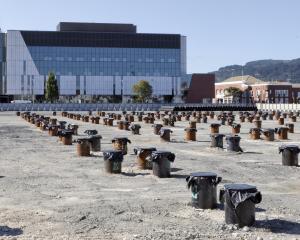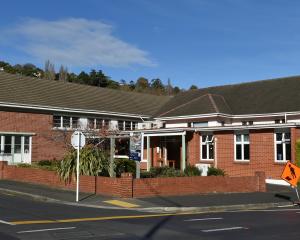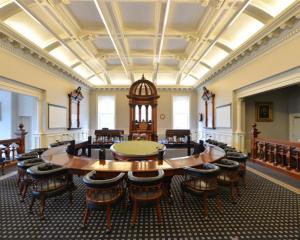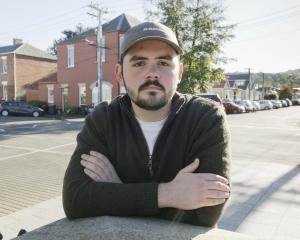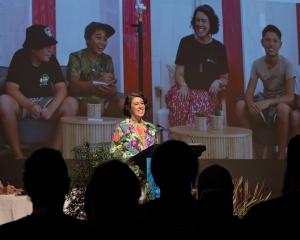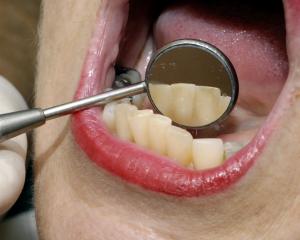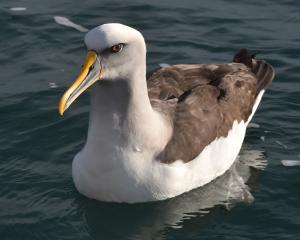
"I didn't think anything of it."
Ten years later, the self-confessed pokie addict also recalls the last time he put a $2 coin into a poker machine.
"It was five weeks ago."
The 40-year-old Dunedin man and marathon-winning athlete said he had poured an estimated $60,000 into pokies during the past decade.
At times, he went without food so he could feed his addiction, he said.
He has now taken out self-exclusion orders from every poker machine venue in Dunedin - effectively barring him from playing any pokie in the city - in an attempt to stop his problem gambling.
"It feels like a new beginning . . . but I am not going to lie and say I don't have urges."
He hoped his story inspired other problem gamblers to seek help to "overcome this hideous form of addiction".
Mr Skilling, who moved from Ashburton to Dunedin in 1997, said, initially, he was not interested in playing pokies, preferring to go to the pub to have a drink and watch sports with his mates.
By 2000, all that had changed; he was still going to the pub, but his sole intention was playing pokies.
"It took about six months to a year to get hooked . . . unbelievably fast," he said.
Mr Skilling, a student at the time, said pokie venues offered him a place to go in a warm, hospitable environment, where he was offered free hot beverages.
He says he won a jackpot only three times in 10 years, winning about $800 to $900 each time. Rather than keep the money, he fed the money back into the machines.
At times, he spent up to 13 hours playing pokies, yet no pokie venue staff member ever questioned his obvious obsession, he said.
He sought counselling from the Salvation Army Oasis Centre in 2000 in the hope of controlling his gambling.
"They give you the information to help you, but it is up to you to make the change. But I know I won't be over this addiction until I have left this mortal coil, because every day there is an opportunity to gamble."
In between the lows of his addiction came several achievements, such as graduating from university in 2004, and in the same year winning the Moro and Otago Marathon titles in only his third attempt at the distance.
But the lure of pokies continued to cast a shadow over his life.
"Even someone's [mobile telephone] ring tone can remind me of the machines," he said.
His addiction had taken him to every pokie venue in the city, rubbing shoulders with other problem gamblers - with barely a word spoken.
"I could be sitting next to someone for hours, but the only thing they would say is, 'Hey. Could you watch my machine'."
He pawned household items to raise cash to play pokies, always with the intention of buying them back once he won.
"I never did. Anything I won I put it straight back in the machine."
Determined to end to his gambling, Mr Skilling made use of his athletic background two months ago to run between different Dunedin establishments, handing over photos of himself along with a self-exclusion order.
Under the Gambling Act of 2003, a person can exclude themselves from a poker machine venue.
Despite his efforts, it has not always worked.
Most venues turned him away, but there were some which turned a blind eye at his attempt to give up gambling, he said.
"It makes it that much harder. One lady laughed at me for wanting to self-bar myself."
For him the solution is simple - ban poker machines.
"As an athlete, I have seen my harrier club benefit from receiving pokie money, but that pales in comparison to what I, and others, have lost. As far as I am concerned it is blood money."
Mr Skilling plans to leave Dunedin for Auckland in the coming months to pursue job opportunities in the education sector.
• At a glance
- Today is National Gamble-Free Day
- New Zealanders spent $2.02 billion on all forms of gambling last year.
- $950 million was poured into non-casino poker machines.
- There are 19,856 non-casino pokies at 1552 venues.
- Pokies are the primary mode of gambling for 81% of problem-gambling clients.
- More than 60% of problem gamblers live in low socioeconomic areas.
- More than $54 million was spent on pokies in Otago and Southland last year.
Source: Problem Gambling Foundation of New Zealand


